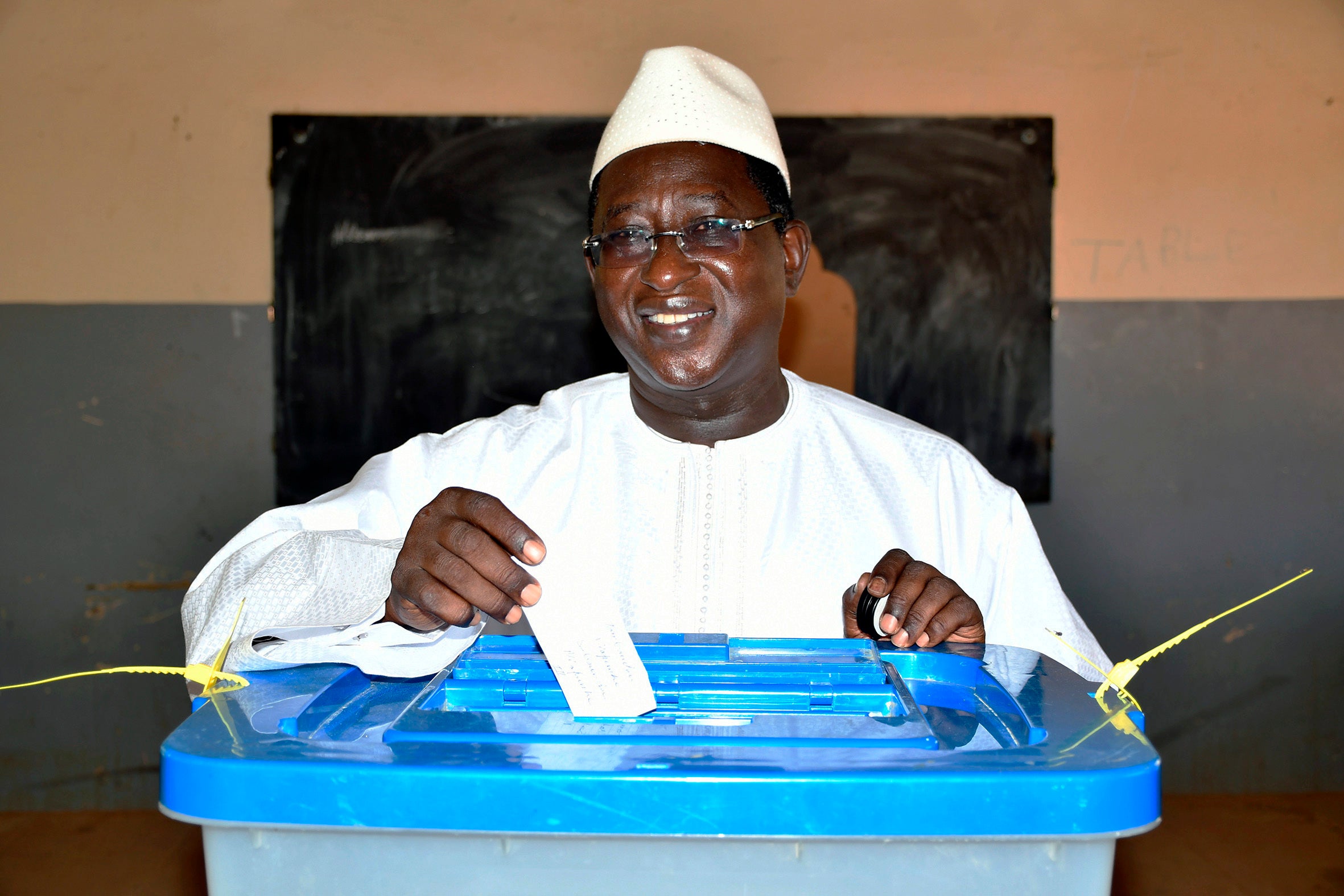Families await freed hostages' return in Mali's capital
Relatives and supporters are awaiting the return of a prominent politician and French aid worker reportedly freed in a remote corner of northern Mali

Relatives and supporters on Wednesday awaited the return of a prominent Malian politician and a French aid worker released by Islamic extremists as concerns deepened about the potential fallout from the freeing of nearly 200 extremists in an apparent exchange.
Family members of Soumaila Cisse and Sophie Petronin indicated Tuesday that they had been notified of their release, though there was no official confirmation from the Malian or French governments. The word came just days after the freed extremists were flown to the northern town of Tessalit.
In Paris, French government spokesperson Gabriel Attal told reporters it was an “extremely sensitive” issue requiring “the greatest discretion."
Laith Alkhouri, an intelligence specialist who researches extremism in West Africa, said the reported prisoner exchange could prove costly in Mali, where jihadists already launch frequent attacks on soldiers and U.N. peacekeepers.
“The likelihood is that these very jihadists will ultimately engage in militant activities,” Alkhouri said. "It will look good for the hostages to be released, but in the end the release of dozens and dozens of jihadists back into the battleground will negatively impact the security structure.”
The reason for the timing of the hostages' release was not immediately clear, though there may have been health concerns for 70-year-old Cisse and 75-year-old Petronin.
Petronin’s nephew told France’s BFM-TV that she was free nearly four years after she was kidnapped while working for a charity in the northern town of Gao.
“French authorities have not confirmed it officially but us, the family, we can be happy that she’s free after 1,381 days,” Lionel Granouillac told the station late Tuesday.
Relatives flew into Mali's capital, Bamako from France in anticipation of a reunion, as crowds gathered outside the airport expecting a flight from the remote northern region of Kidal where the pair were reportedly freed.
There was no immediate confirmation on whether a ransom was paid. Extremist groups in the Sahel have long funded their organizations through kidnappings for ransom.
A total of nine Western hostages seized from Mali, Niger and Burkina Faso are believed to remain in the hands of various jihadist groups in the region.
The al-Qaida-linked JNIM group, believed to have held Petronin and Cisse, is led by Iyad Ag Ghali, a Tuareg rebel leader once considered a key mediator in the negotiations to free European hostages held for ransom.
JNIM was officially formed in 2017 when four extremist groups joined forces: al-Qaida’s North Africa branch, Al Mourabitoun, Ansar Dine and the Macina Liberation Front.
JNIM-linked militants are believed to be holding at least seven of the remaining foreign hostages: Italians Pierluigi Maccalli and Nicola Ciacco, Australian doctor Ken Elliott, Colombian nun Gloria Cecilia Narváez Argoti, South African national Christo Bothma, Swiss national Beatrice Stockly and Romanian citizen Julian Ghergut.
The other two, American Jeffery Woodke and German Jorg Lange, are believed to be held by extremists linked to the rival Islamic State group.
Petronin was seized in December 2016. She appeared 18 months later in a video released on Telegram by JNIM alongside the Colombian nun.
In March, extremists ambushed Cisse's vehicle while he and his entourage were campaigning in northern Mali. The three-time presidential candidate was later re-elected to his parliament seat while in captivity.
The only proof that he was still alive was a handwritten letter delivered in August. Negotiations for his release had appeared to stall after a military coup overthrew democratically elected President Ibrahim Boubacar Keita, who beat Cisse in the 2013 and 2018 elections.
While a transitional civilian government has been chosen, new elections are being organized with a 2022 deadline, providing a possible new political avenue for Cisse.
___
Sylvie Corbet in Paris, Sam Mednick in Ouagadougou, Burkina Faso and Krista Larson in Dakar, Senegal, contributed.
Bookmark popover
Removed from bookmarks